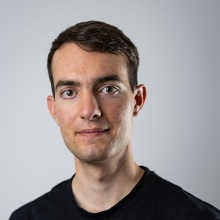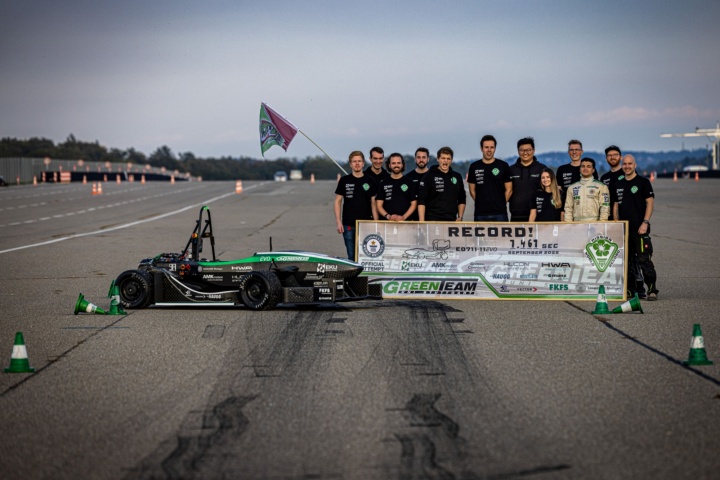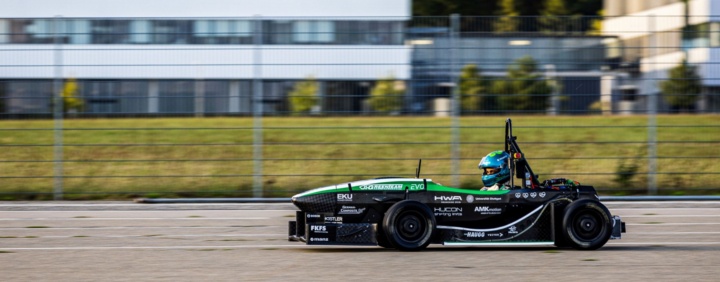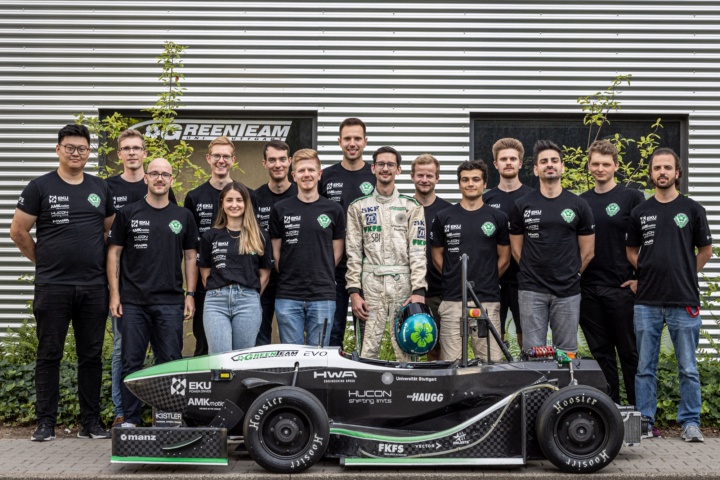On September 23, students from the University of Stuttgart broke the acceleration record for electric vehicles. From a standing start, the "Greenteam's" self-built car reached a speed of 100 km/h in 1.461 seconds. Florian Stober from the Institute for Formal Methods of Computer Science (FMI) contributed to this success. In this interview, the research assistant tells us how he manages to combine his studies with racing.
Dirk Srocke: Congratulations on the 1.461 seconds. Can we call you world champion now?
Florian Stober: Not world champion, the correct title would perhaps be world record holder...
Srocke: Well, then we'll stick with world record holder. But you didn't drive yourself?
Florian Stober: No, I have never driven the car myself.
Srocke: Will you ever have the chance to do so?
Florian Stober: Yes, there is a possibility. We plan to do a team drive next spring. That means that everyone who has helped out can sit in and try it out.
Srocke: And you have undoubtedly helped. But what exactly was your part in the race car?
Florian Stober: My area of work was system electronics and telemetry. That means I did a lot of embedded software and I worked on transmitting the data from the vehicle and visualizing the sensor data.
Srocke: Can you explain a bit more?
Florian Stober: We have a CAN bus on the car, all the data is on there. We had to wrap these CAN messages in UDP packets in order to transmit them wirelessly via WLAN. I helped to develop this protocol further. To display the data visually, we use Grafana.
Srocke: Sounds like some work. How much time did you personally invest in the project?
Florian Stober: In the 2020/21 season, I was on site once a week to work on the car and make parts. On top of that, I spent about another day programming for the project at home. On the following car, the one built for 2021/22, I didn't actively help any more–but I continued to optimize the previous year's E0711-11 EVO model as part of the team, and we were finally able to bring the world record back to Stuttgart on September 23.
Srocke: So you still had enough free time for your studies?
Florian Stober: Yes, I wrote my master's thesis in the field of algorithmic group theory in 2021.
Srocke: That doesn't sound like a related topic at all...
Florian Stober: That's right, and for me, working in the Greenteam was a welcome change. I have to say, I really enjoy electronics, and my brother certainly played a part in my decision to join the Greenteam: He is studying electrical engineering, was in the Greenteam before me, and always told me how great it was. In the end, we both worked together on the electronics of the race car. And in the end, I ended up back in programming.
Srocke: So your studies did help you a little bit.
Florian Stober: Yes, and not just in terms of programming. For example, I also attended a lecture on embedded systems, which dealt with the modeling of real-time systems. The question then is, whether a processor can actually process all the tasks that arise in a given time. In principle, this is a scheduling problem, that's pretty close to theoretical computer science.
Srocke: And you will continue to be associated with this field as a research assistant at the department. Good luck for your future career and thank you for the interesting interview!





